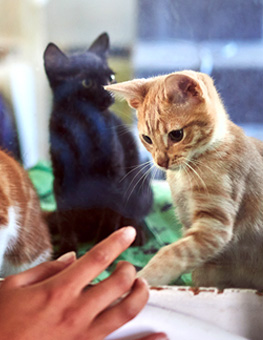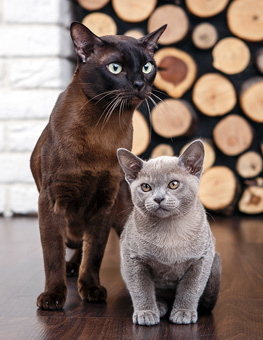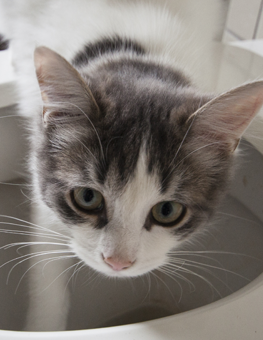Should I Get a Male or Female Cat?
So, you’ve decided to adopt a new cat. Congratulations! You probably have a lot of questions in the back of your mind. What color will my new cat be? What breed? How old? And should I get a male or female cat?
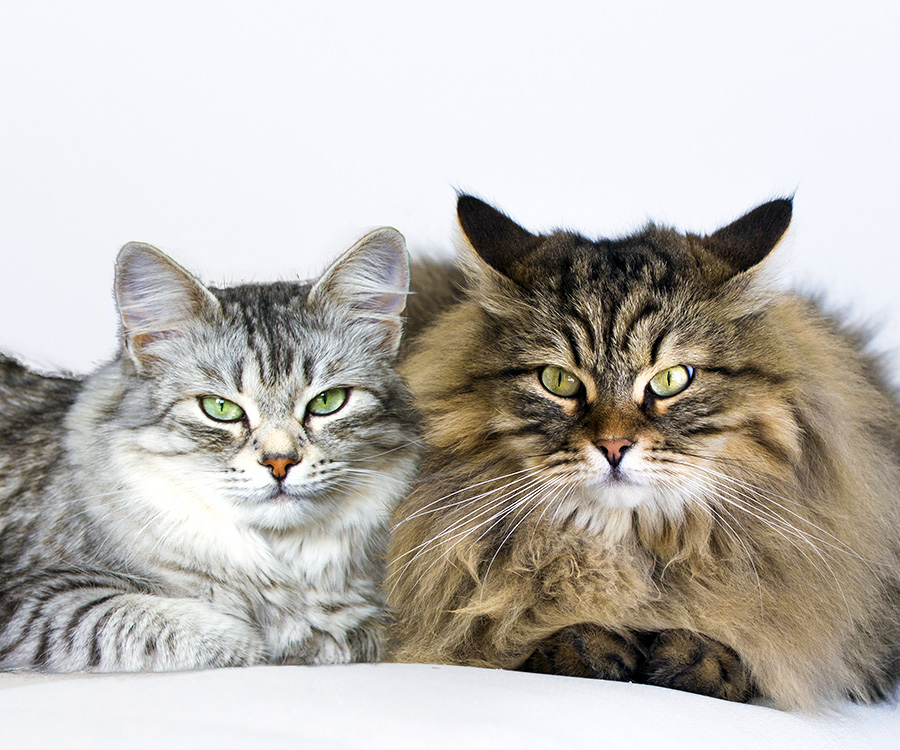
Every cat's personality is unique and has little to do with their gender.
Anecdotally, everyone you speak to will have a different experience to share. You may have heard that male cats are more cuddly or affectionate than females. You may have also heard that male cats are more likely to spray and become destructive in the home! It’s hard to know what is true of individual cats versus the entire gender.
Does Spaying and Neutering Matter?
There are definitely large differences observed between in-tact (unfixed) male and female cats. Do male or female cats spray? Unneutered male cats generally do urine mark, and it can be difficult to control indoors as it is an instinctual and natural behavior. Unspayed female cats go into heat on a regular basis and may also spray urine at this time.
They’ll also be extremely vocal and extra affectionate – but make no mistake, this behavior is less than endearing. You’ll definitely want to get your cat altered, whether they are male or female!
What if I Already Have a Cat at Home?
In the wild, without the influence of people, cats tend to naturally live in groups of related females and their offspring. When the male kittens are old enough, they will leave the colony and live largely solitary lives, roaming across large areas.
These natural behaviors encourage some people to adopt multiple female cats. However, there isn’t much evidence that shows that a cat’s gender has a significant influence over if it will get along with other cats if all cats are spayed or neutered.
Are There Health Differences Between Male and Female Cats?
If you’re looking to adopt, chances are, you want to pick a feline friend that will be with you for a long time to come. So, are male or female cats generally healthier?
Although any cat can develop significant health concerns, caretakers of male cats should be aware that males are typically more prone to developing life-threatening urinary blockages. This is because a male cat’s urethra is much narrower than a female cat’s, meaning that it can block up much more quickly.
Not all male cats will develop blockages. You can help prevent them by closely monitoring your male cat’s litter box habits and making sure he stays well-hydrated.
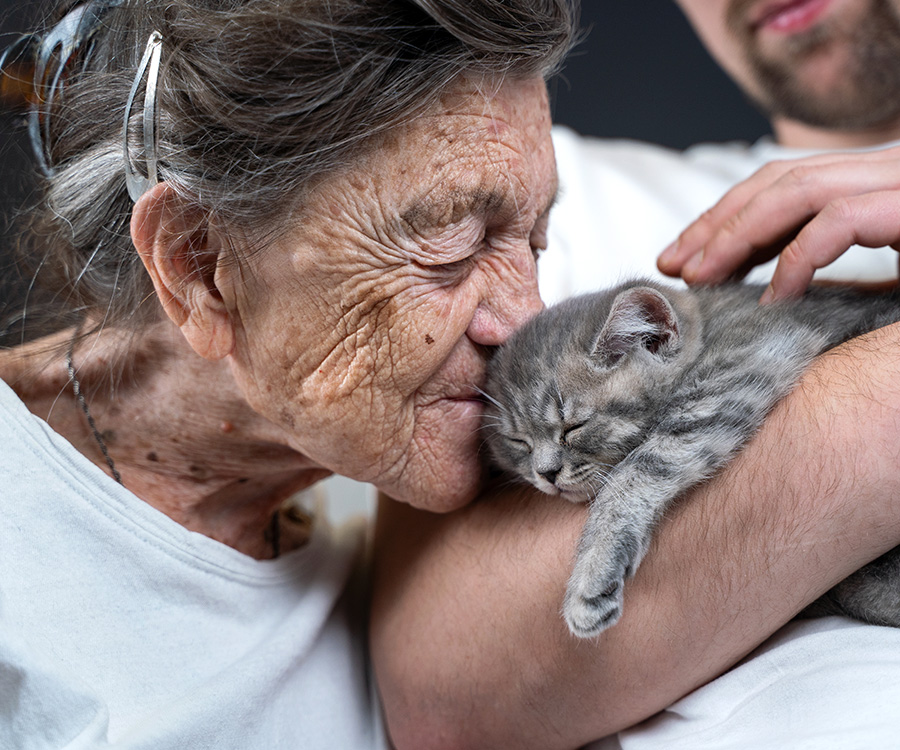
You can narrow down your choice of cat by traits, asking if you want a snuggly or playful cat.
Are the Stereotypes About Male and Female Cats True?
If you’ve asked around to friends and family, you’ll probably hear at least one person say that male cats are more affectionate than females, and that female cats tend to be more standoffish than males. But is it really true? The answer is no. Every cat has a unique personality, and whether or not you have a snugglebug or a Mr. or Ms. Independent is up to the individual cat and has little to do with their gender.
Cat personalities aren’t a popular topic in research, but what we can be sure of is that a well-socialized, well-cared for kitty is very fond of his or her human family.
And are male or female cats better mousers? You may have heard that female cats make better mousers, but the truth is, all cats are capable hunters! It’s what they’re born to do.
Should I Choose a Male or Female Cat?
We can safely come to the conclusion that gender just doesn’t matter much when it comes to choosing a new cat. However, personality does!
Before getting a new cat, narrow down a few personality traits that you’re looking for. Do you want a snuggly cat? A playful cat? A cat who won’t mind being alone while you’re at work?
If you focus on the individual personality of each cat, rather than making a blanket statement that you want a male cat, or an orange cat, or a cat younger than 5 years old, you are guaranteed to find a great fit for your household!





